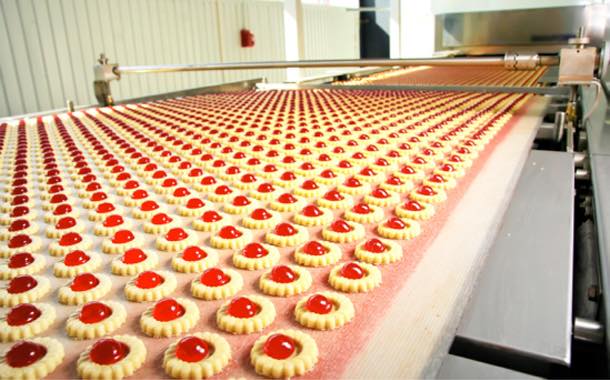Introduction
In today's hectic globe, the demand for convenient and also ready-to-eat food products is on the increase. This has caused a raised reliance on contract food manufacturing, where companies outsource the manufacturing of their foodstuff to specific suppliers. Nonetheless, one aspect that is commonly neglected in the contract manufacturing procedure is reliable food storage space and circulation. In this post, we will discover the value of efficient food storage space as well as circulation in agreement production and also its effect on the general quality as well as success of food products.
The Role of Contract Food Manufacturing in Australia
Australia has a flourishing food sector, with a variety of local and also global brands satisfying the varied preferences and also preferences of consumers. Contract food manufacturing plays an essential role in this market by supplying companies with the essential sources, expertise, and also framework to effectively produce their food products. From tiny startups to big firms, many services turn to acquire manufacturers to bring their culinary creations to life.

Contract Food Production in Brisbane: A Hub for Innovation
Brisbane, the funding city of Queensland, is recognized for its vivid food scene and also cutting-edge cooking offerings. It comes as no surprise that contract food manufacturing has actually flourished in this area. With cutting edge centers as well as a knowledgeable workforce, agreement food suppliers in Brisbane are fully equipped to take care of the production needs of different businesses. Whether it's establishing brand-new recipes or scaling up production, these suppliers play a pivotal duty in bringing tasty foodstuff to customers' plates.
Ensuring High quality: The Trick to Effective Agreement Food Manufacturing
When it pertains to contract food manufacturing, ensuring item quality is vital. Manufacturers have to adhere to rigorous standards and also guidelines established by authorities such as the Australian Food Specification Code and also Good Manufacturing Practices (GMP). From active ingredient sourcing to production procedures, every step should be carefully prepared and implemented to maintain the finest quality requirements. This not only guarantees client complete satisfaction but also helps construct trust as well as credibility for both the agreement producer and also the brand they are producing for.
The Difficulties of Food Storage in Contract Manufacturing
Efficient food storage is a crucial element of contract manufacturing. The correct storage space of raw materials, active ingredients, as well as completed products is important to preserve their quality and also quality. However, this can be tough, especially when handling perishable items or huge amounts of supply. Elements such as temperature level control, product packaging stability, and also supply management play a critical duty in making sure that food products stay safe for usage throughout the supply chain.

Overcoming Storage space Obstacles: Modern Technology as well as Advancement at Play
In recent years, developments in innovation have actually reinvented the way food is stored as well as dispersed in agreement manufacturing. From advanced refrigeration systems to sophisticated inventory management software, suppliers now have access to tools that can simplify their operations as well contract food manufacturing as guarantee ideal storage problems. These technological technologies not just boost food safety and security but likewise boost effectiveness as well as lower waste, eventually profiting both the producer and the end consumer.
The Relevance of Reliable Food Distribution
Efficient food circulation is an additional essential part of effective agreement manufacturing. When the food products are made as well as saved properly, they need to reach their desired locations quickly. Timely shipment guarantees that the products stay fresh as well as fulfill client assumptions. Additionally, reliable distribution additionally reduces costs associated with transport and also logistics while optimizing general productivity.
From Ranch to Fork: The Journey of Food Products
The trip of food products from ranch to fork entails several stages, each needing cautious preparation and also implementation. Let's take a better look at each action involved in this process:
Sourcing Raw Materials: Agreement food manufacturers work very closely with providers to resource premium raw materials for their products. This includes every little thing from fresh produce to seasonings, spices, and product packaging materials.
Food Production: Once the raw products are sourced, the agreement supplier complies with a set recipe as well as production procedure to produce the preferred food product. This involves various methods such as cooking, baking, blending, and also packaging.
Quality Control: Throughout the manufacturing process, quality control actions are executed to guarantee that the finished item satisfies all safety and also top quality criteria. This consists of regular assessments, screening, and adherence to regulatory requirements.
Food Packaging: After the item is produced, it is meticulously packaged to preserve its quality as well as honesty throughout transport and also storage. Contract producers typically offer personalized product packaging solutions tailored to satisfy the certain requirements of their clients.
Storage and Distribution: Once packaged, the food are saved in suitable conditions to preserve their quality. From temperature-controlled warehouses to reliable logistics networks, agreement manufacturers ensure that the items are distributed effectively as well as reach their locations on time.
FAQs
What is contract food manufacturing? Contract food manufacturing describes outsourcing the manufacturing of foodstuff to specialized makers. This allows companies to focus on other facets such as advertising and marketing and distribution while making certain top quality products for their customers.

Why do business pick contract food manufacturing in Australia? Firms pick contract food manufacturing in Australia for numerous reasons, consisting of cost-effectiveness, access to customized proficiency, compliance with governing criteria, as well as scalability of production.
What are the benefits of contract food manufacturing? The advantages of contract food manufacturing include decreased capital investment, access to innovative modern technologies and tools, boosted manufacturing efficiency, faster time-to-market, and flexibility in conference transforming market demands.
What is the duty of food product packaging in contract manufacturing? Food packaging plays a crucial role in agreement manufacturing as it guarantees item safety and security and also extends life span. It likewise acts as a marketing tool by giving details regarding the item and also improving its aesthetic appeal.
How important is food safety in agreement manufacturing? Food safety and security is of utmost importance in agreement production. Complying with strict food safety and security requirements ensures that the items are safe for consumption as well as assists construct consumer trust.
How does efficient food storage and circulation influence the success of agreement manufacturing? Efficient food storage and also circulation play a significant role in the success of agreement manufacturing. They make certain that food continue to be fresh, reach customers on time, as well as preserve their top quality throughout the supply chain.
Conclusion
Efficient food storage as well as circulation are essential elements of successful contract manufacturing. From making sure product top quality to minimizing waste and also conference client expectations, every aspect of the supply chain plays a substantial duty in delivering risk-free and high-grade food products to customers. By leveraging technological improvements, adhering to regulative criteria, and also prioritizing consumer fulfillment, agreement suppliers can improve their competitiveness on the market while adding to the general development of the Australian food industry.